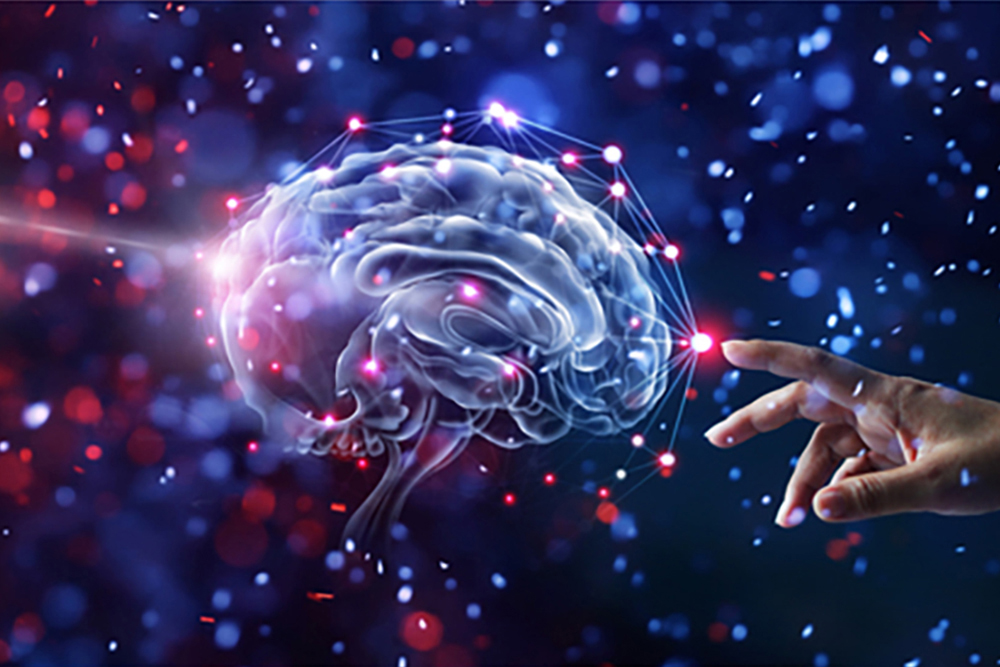Addressing Withdrawal-Emergent Dyskinesia: Urgent Need for Better Management and Research in Pediatric Psychiatry

Withdrawal-emergent dyskinesia (WED) is a movement disorder that can develop following the sudden stop or quick reduction of antipsychotic medications, typically resolving within weeks. Highlighted by a case of a 13-year-old experiencing reversible oral dyskinesia during neuroleptic withdrawal and stimulant titration, this scenario stresses the need for heightened awareness among clinicians of potential extrapyramidal symptoms and withdrawal effects. This awareness is essential in managing the rising prescription of these medications to treat diverse psychiatric disorders in youth, aiming to prevent and handle complications effectively.
Managing Tardive Dyskinesia: A Multidisciplinary Approach to Enhancing Daily Functioning and Quality of Life

Tardive dyskinesia (TD) presents challenges beyond its visible symptoms, impacting speech, swallowing, and mobility, thereby affecting daily functioning. While medication options such as VMAT inhibitors are available, holistic management often involves collaborative efforts with healthcare professionals like speech, physical, and occupational therapists. Speech therapists address hyperkinetic dysarthria, employing comprehensibility strategies to enhance communication and mitigate swallowing difficulties. Physical therapists focus on improving gait, balance, and body movements through personalized plans, utilizing techniques like repetition and sensory input enhancement. Occupational therapists aid in restoring functional abilities by adapting tasks and incorporating assistive devices tailored to individual needs, thereby enhancing independence in daily activities.
Study Reveals Tardive Dyskinesia Worsens Cognitive Impairment in Schizophrenia, With Gender-Specific Effects

In a study on cognitive impairment in patients with schizophrenia with tardive dyskinesia (TD), researchers found that TD exacerbates existing cognitive deficits in schizophrenia. Particularly, patients with TD displayed worse cognitive performance, notably in visuospatial/constructional and attention domains, compared with those without TD. Notably, while male patients with TD exhibited significant cognitive impairments, this was not observed in female patients, suggesting a possible protective effect of female gender against TD and cognitive deficits, potentially linked to hormonal factors like estrogen.
Study Links Neuronal Degeneration in Tardive Dyskinesia to Brain Connectivity Changes Using MRI

Researchers investigated the role of neuronal degeneration in tardive dyskinesia (TD) by analyzing cerebral regional homogeneity (ReHo) using resting-state functional MRI in patients with schizophrenia, both with and without TD, and healthy controls. Significant ReHo variations were found in specific brain regions of patients with TD, indicating altered neural connectivity. These variations were correlated with the severity of TD symptoms, highlighting ReHo’s potential in understanding TD’s etiology and progression.
Unusual Case of Tardive Dyskinesia in Young Patient Raises Questions About Low-Dose Second-Generation Antipsychotics

A case presented a 28-year-old female with osteogenesis imperfecta and major depressive disorder with psychotic features, who developed tardive dyskinesia (TD) after taking a low-dose second-generation antipsychotic, risperidone (2 mg), for three months. Despite discontinuing risperidone and switching to quetiapine, her symptoms, including akathisia, dystonia, involuntary movements, and lip smacking, persisted, leading to a diagnosis of TD. This case is noteworthy as TD is less commonly reported with low-dose monotherapy of second-generation antipsychotics, especially in younger patients.
Evaluating the Susceptibility to Tardive Dyskinesia in Patients With Schizophrenia

In a study involving 216 patients with schizophrenia, researchers investigated the link between polymorphisms in oxidative stress-related genes and adenosine receptor gene with tardive dyskinesia (TD) occurrence and cognitive impairments. Patients were separated into two groups: TD group (n=157) and non-TD group (n=59). The extraction of DNA was completed by using a high-salt method, as well as SNP genotyping. The Abnormal Involuntary Movement Scale, Positive and Negative Syndrome Scale, and Repeated Battery for Assessment of Neuropsychological Status were used to measure TD severity, psychopathology, and cognitive functioning. In this group of patients, it was found that the interaction of oxidative stress-related genes and adenosine receptor gene might contribute to TD susceptibility and severity.
Evaluating the Clinical Utility of Deutetrabenazine

Authors of a review aimed to explore the clinical utility of deutetrabenazine in Huntington’s Disease (HD) and tardive dyskinesia (TD). Through summarizing clinical evidence, the authors walked through the efficacy in both disease types. Overall, the authors sited deutetrabenazine to be a safe and effective treatment for both TD and chorea in HD, with indirect comparisons showing relative superiority of deutetrabenazine over tetrabenazine for safety, though they do note that direct comparisons of efficacy and safety is needed between VMAT2 and dopamine blocking agents.
Staying Up-to-Date on Treatments and Practices

In a video from Medpage Today, Peter Weiden, MD, comments on staying updated on new antipsychotic drugs and medical practices. He notes that he has learned from online resources
Dr. Stacy Finkbeiner Explores the Effects of Tardive Dyskinesia on Life’s Key Domains in a Groundbreaking Study

In this YouTube video, Stacy Finkbeiner, PhD, discusses a study published in The Journal of Clinical Psychiatry on the profound impact of tardive dyskinesia (TD) on patients’ lives across physical, psychological, social, and professional realms. The survey, conducted in the United States, reveals that TD significantly impacts various aspects of life, including motor function, sleep, emotional well-being, social interaction, and employment. Notably, over one-third of those surveyed have skipped or ceased their medication due to the severity of their TD symptoms.
Survey Shows Tardive Dyskinesia Severely Impacts Quality of Life Across Multiple Domains

In a study, 269 patients with tardive dyskinesia (TD) were surveyed to evaluate the disorder’s impact on their quality of life. The findings revealed that most patients experienced moderate-to-severe physical challenges due to TD, including difficulties with speaking, eating, and sleeping. Psychologically, patients felt embarrassed and anxious, leading to social withdrawal. Socially, TD impacted patients’ relationships and increased stigma. Professionally, it led to significant work impairment and hindered career progress.
The study emphasizes that TD’s effects are diverse and profound, influencing more than just motor functions and significantly reducing patients’ overall wellbeing and daily life.
